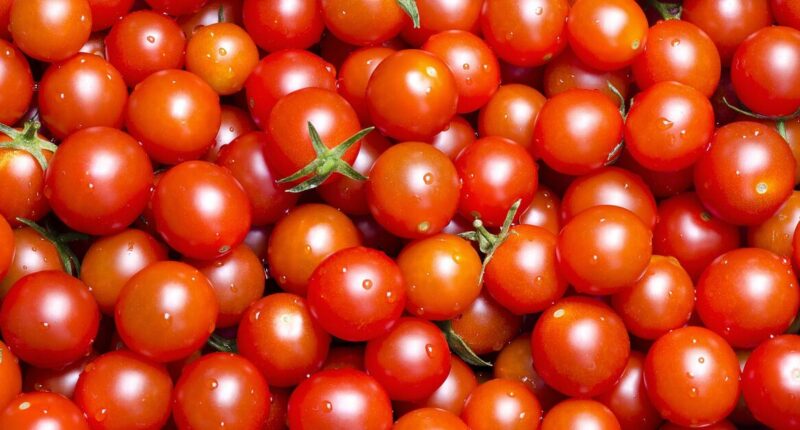Share this @internewscast.com
A recent alert has spotlighted tomatoes as a major concern, with the fruit linked to food poisoning incidents throughout Europe. Experts have identified cherry tomatoes as a recurring source of Salmonella outbreaks over the years, including several incidents in England.
An extensive study spearheaded by the European Centre for Disease Prevention and Control (ECDC) documented 643 outbreaks in 17 countries from 2011 to 2024. Their findings, published in the journal Eurosurveillance, reveal that the majority of these cases took place between 2023 and 2024. They caution that the actual number of infections may be “significantly higher” than reported.
According to the Daily Mail, the research team traced the infections to a common origin: small tomatoes originating from Sicily. They suggested that tomatoes were likely the source for most, if not all, years covered in the study.
The study cautioned that merely rinsing the tomatoes before eating may not be sufficient to ward off Salmonella Strathcona. This infection can lead to severe symptoms such as intense stomach pains, diarrhea, fever, vomiting, and headaches.
The researchers emphasized the necessity for “rigorous control measures at the source” to eliminate contamination and avert future outbreaks. Salmonella poses a serious risk, especially to those with compromised immune systems.
In related developments, the UK Health Security Agency (UKHSA) reported nearly 30 cases of Salmonella in the UK, tied to the latest outbreak. The ECDC notes that these incidents predominantly occur during the warmer months, from June to October.
They said: “The recurrence of cases in 2025, including those without travel history, suggests ongoing transmission and distribution of contaminated produce beyond Italy. The presence of cases in multiple countries underscores the need for continued surveillance and cross–sector coordinated response.”
Due to their texture, bacteria is able to easily cling to the surface of tomatoes. Experts say this becomes more dangerous as tomatoes are usually eaten raw rather than cooked.
Gauri Godbole, deputy director and gastrointestinal infections specialist at the UKHSA, said last month: “Salmonellosis is often caused by eating or handling contaminated food and can be rarely spread from person–to–person. Anyone concerned about symptoms should contact their GP or out of hours service in the first instance.
“There are simple steps to stop the spread of salmonella: wash your hands thoroughly after using the bathroom and before preparing and handling food, cook food thoroughly, and if you have symptoms, avoid handling food for others where possible.”













